20 Secrets Police Officers Don’t Want You to Know

Of course, the average person knows that drinking and driving is illegal. But do you know when a police officer does—and does not—have the right to look through your phone? And did you know police officers can legally lie to you? Plenty of nuanced laws of the land tend to be misunderstood—or totally unknown—by the general population. So, if you have a run-in with the law, make sure you keep in mind these police officer secrets.
1
The police don’t have the right to look through your phone, even when you’re in custody.
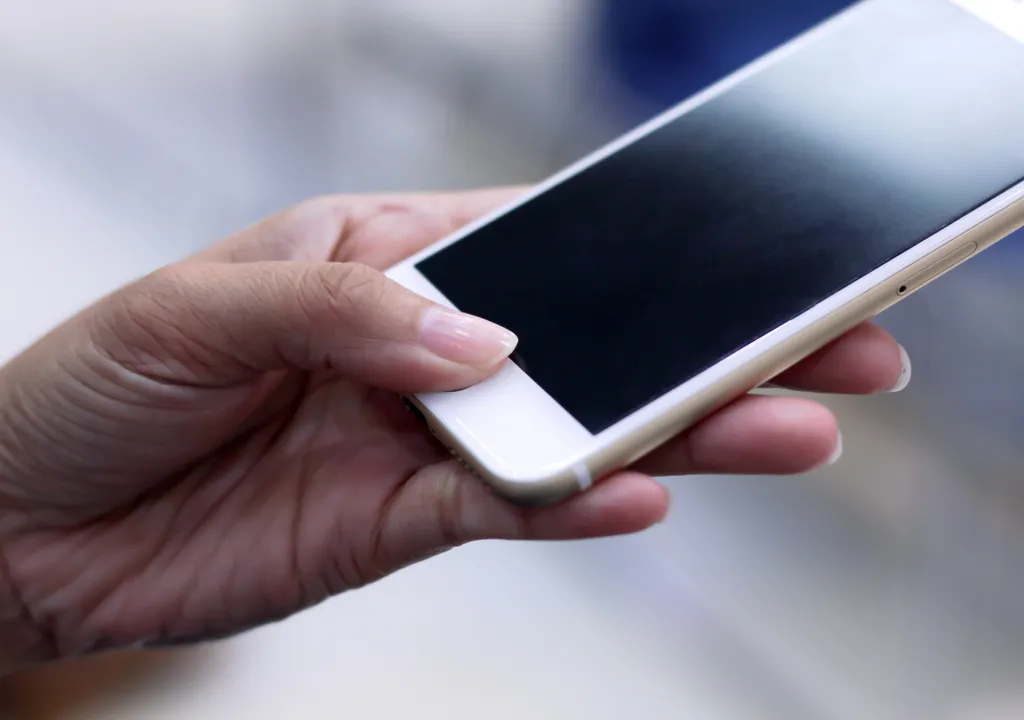
Unless you give your express consent or there is a warrant, the police do not have the right to look through the contents of your phone—even when you’re in their custody. This was decided in the landmark Riley v. California case in 2014, for which Chief Justice John G. Roberts, Jr. decided that, since “digital data stored on a cell phone cannot itself be used as a weapon to harm an arresting officer or to effectuate the arrestee’s escape,” there is no immediate need for an officer to access the contents of a person’s digital devices.
2
Nor can they enter your residence without a warrant or your consent.
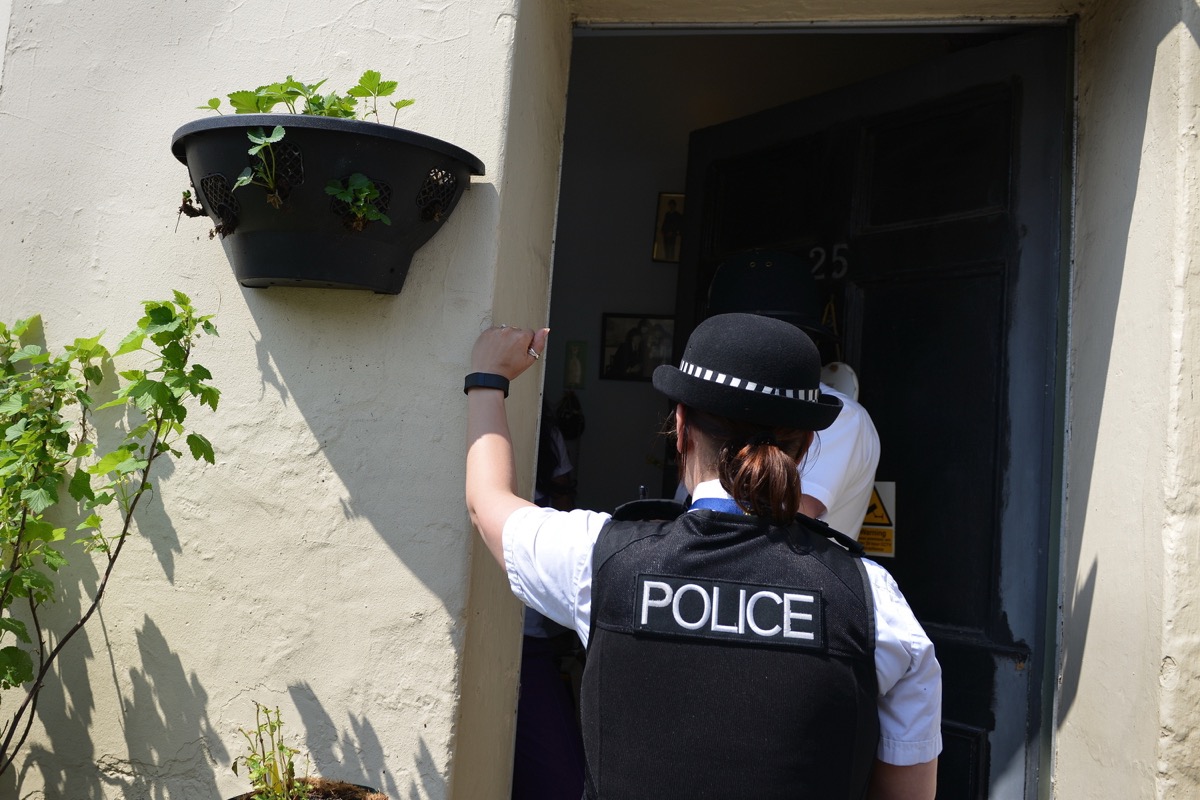
Regardless of what you might see on TV, police officers can’t actually burst into your home unless they either A. have a warrant or B. have received your express consent to do so. However, as Scharff Law Firm in Raleigh, North Carolina, points out, there are a few exceptions to this rule. For instance, an officer can enter your home without your consent under the plain view doctrine when they “can see evidence within their sightline.”
3
They also can’t search your property without a warrant or your consent.
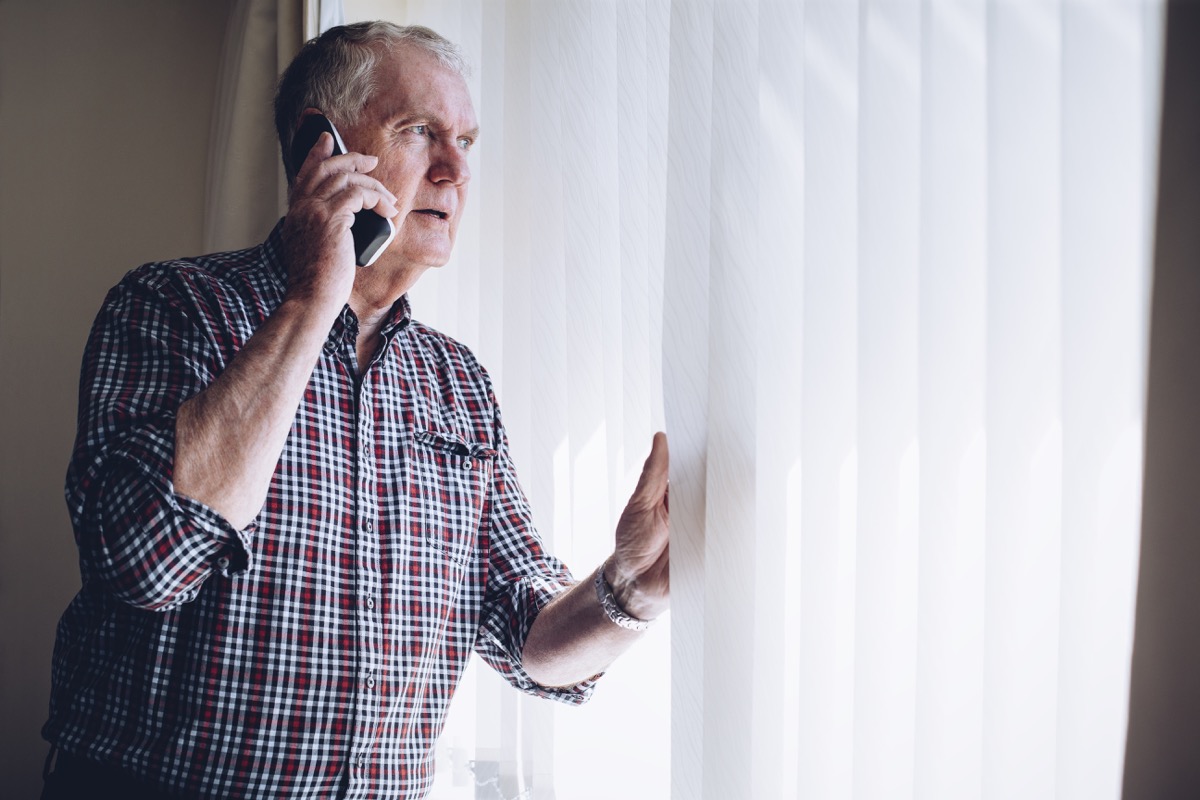
Not only do police officers not have the right to enter your home without a warrant, but they also can’t search your property without one or your consent. But this right is rather recent; it was only in 2018 that the Supreme Court ruled in Collins v. Virginia that “when a law enforcement officer physically intrudes on [a person’s property] to gather evidence, a search within the meaning of the Fourth Amendment has occurred.”
4
Police officers can legally lie to you about having evidence.
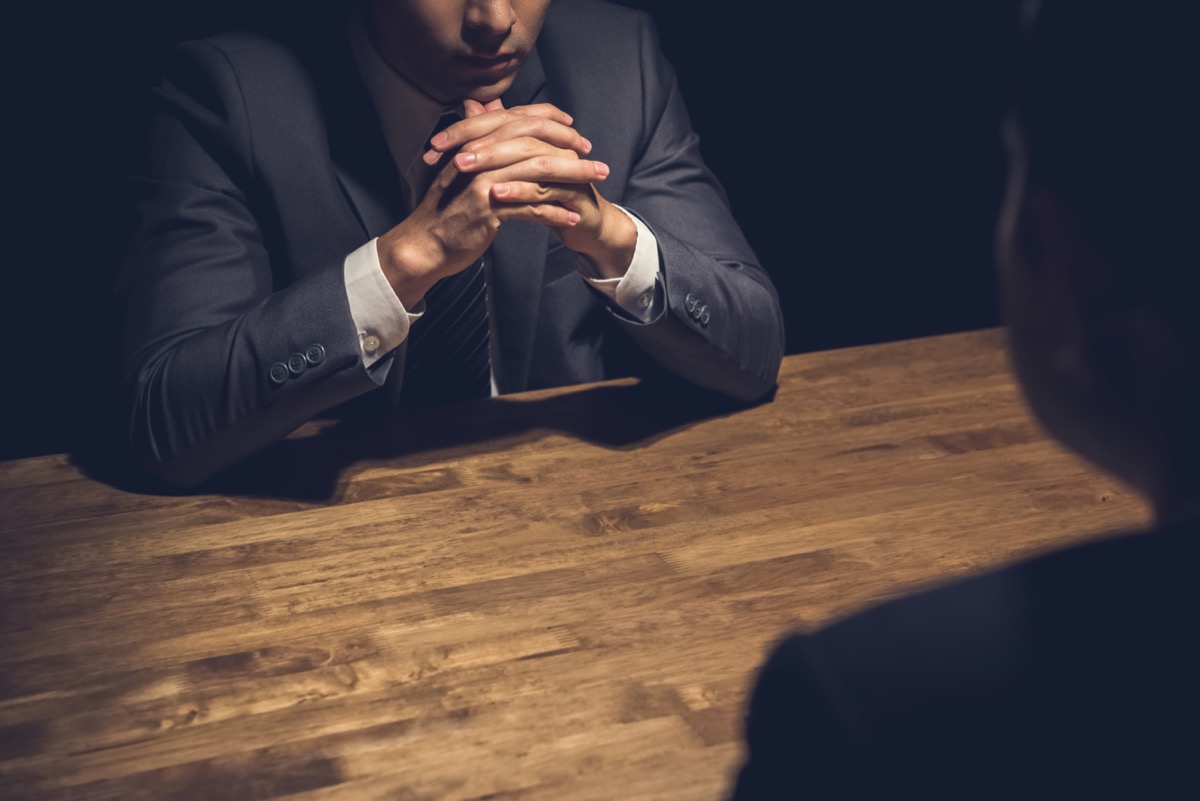
If a policer officer tells you that they found your DNA at the scene of the crime, they may not necessarily be telling the truth—and that’s perfectly within their rights. Time and time again this issue has come up in court cases—and every time it does, the judges ultimately side with the cops, noting that deliberate deception is fair game so long as it’s not likely to produce a false confession.
5
And they can trick you into giving them your DNA.

If you don’t want the police to have your DNA on file, then don’t accept a cup of coffee or water from them. According to Nicholas J. Moore, Esq., a San Diego trial attorney, it is well within the police officer’s rights to obtain DNA samples from anything you touch—and “a positive DNA match to an active crime scene is usually sufficient for an arrest and a charge.”
6
It’s also possible for them to get access to your DNA through DNA testing kit companies.
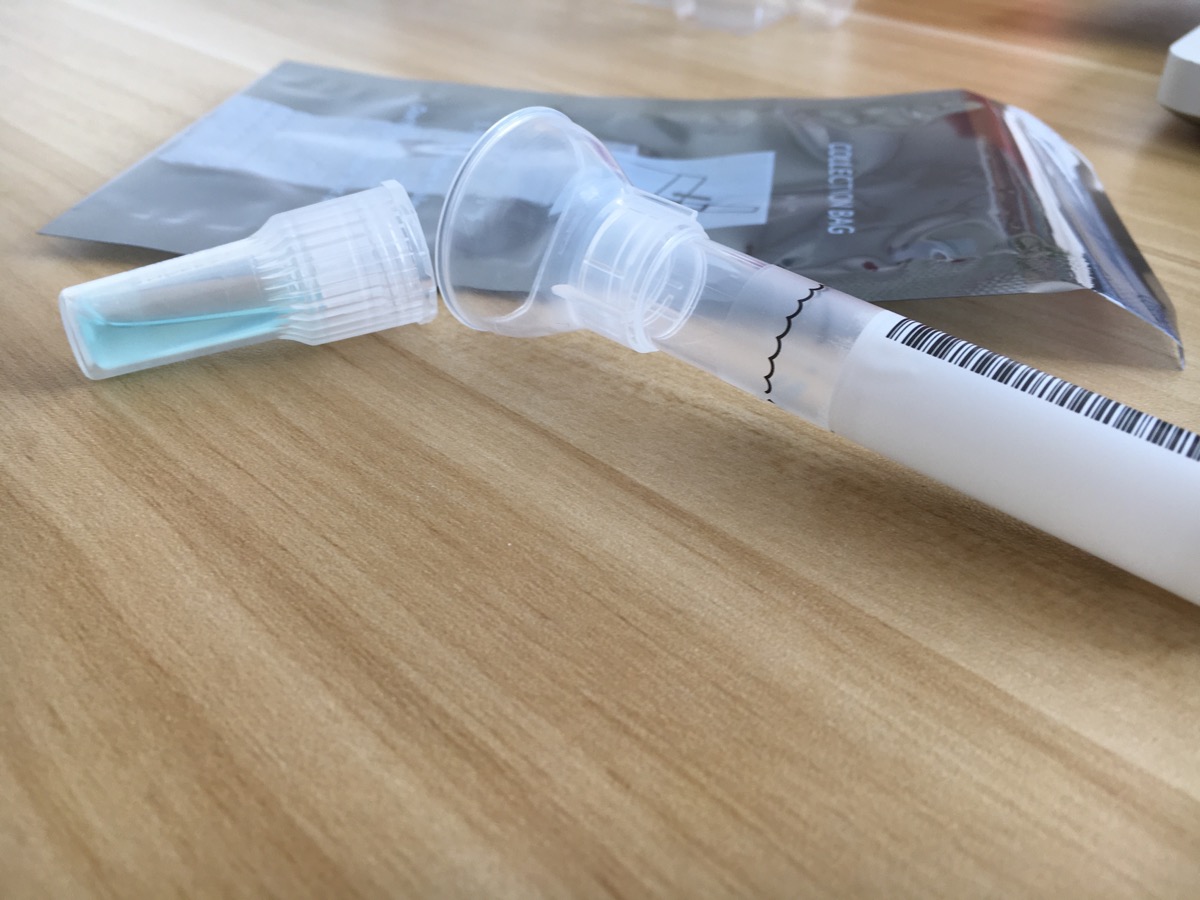
Think twice before sending your DNA in to get tested by a company like 23andMe or Ancestry. Though it’s extremely uncommon, DNA-testing companies like these make it clear on their websites that they will comply with government and law enforcement requests for user information and DNA samples. In 2018, a sample from an ancestry website even helped Sacramento authorities catch the infamous Golden State Killer.
7
You are legally allowed to film and photograph police officers.
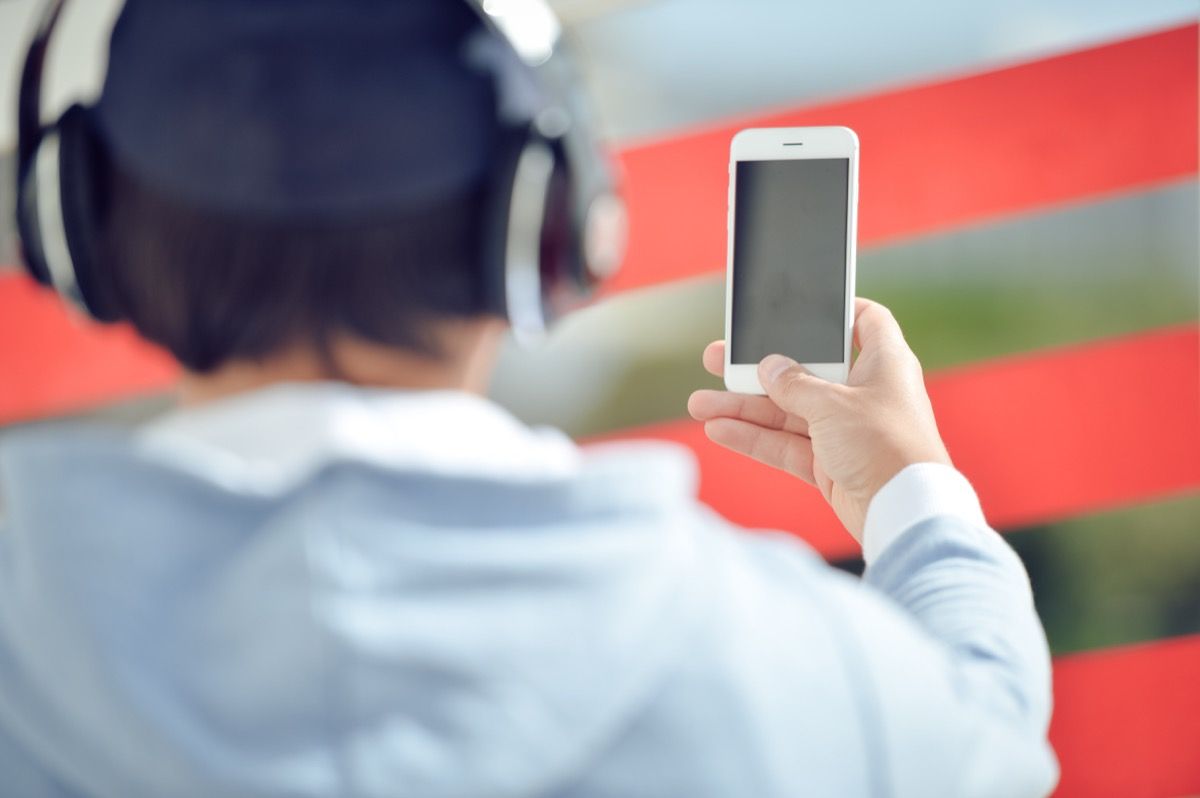
The American Civil Liberties Union (ACLU) of Connecticut notes that as long as you are in an outdoor public space or on private property with the owner’s permission, a police officer cannot command you not to photograph or film them.
8
And they can’t ask you to delete videos or photos from your phone without a warrant.
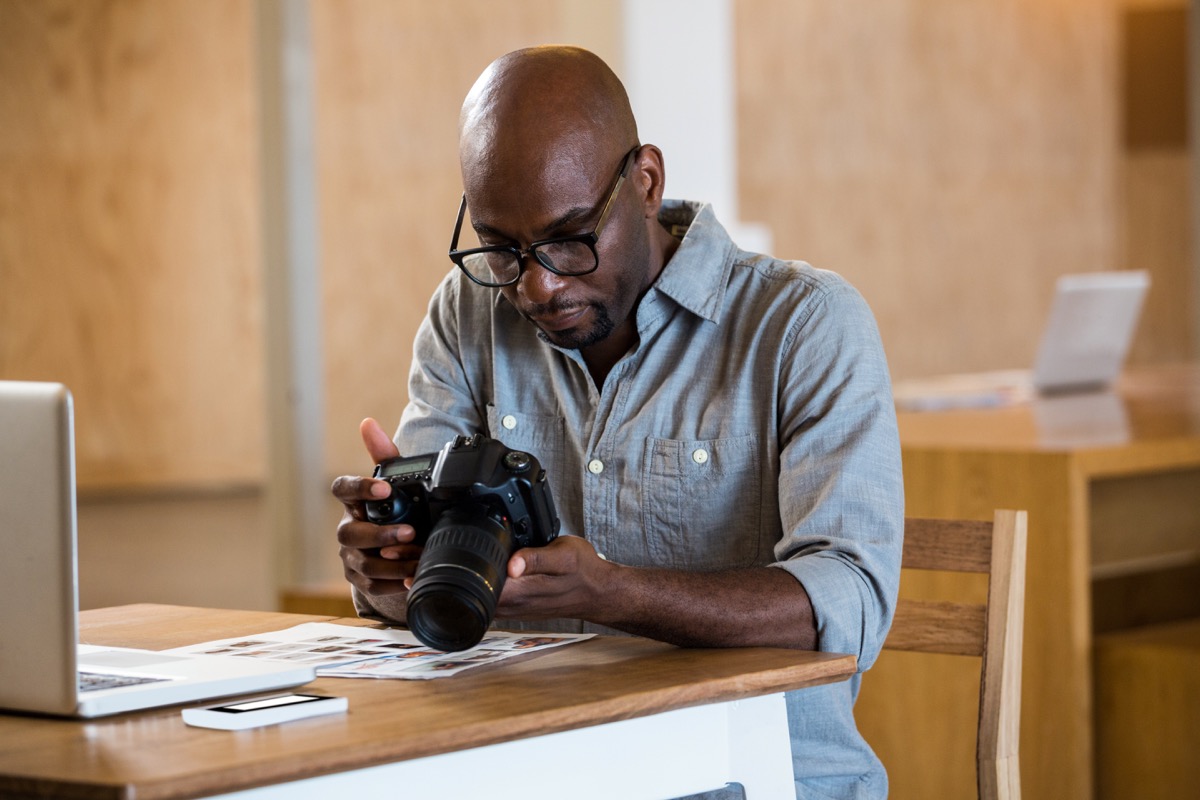
Police officers also can’t ask you to delete any footage or film you get. The only instance in which an officer can demand to see your photographs or videos is with a warrant—and even then, they don’t have the right to delete things from your phone.
9
Not all states require that you show an officer your identification.
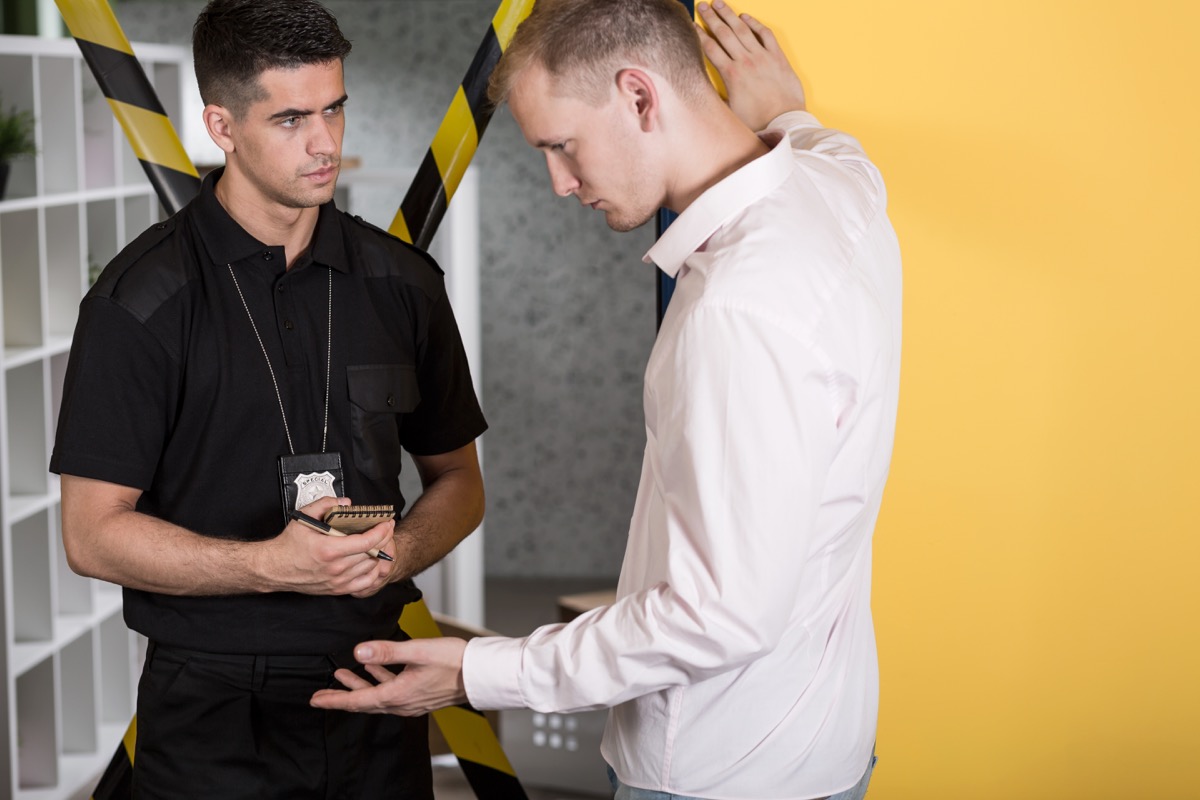
Of course, when you’re traveling internationally, you are legally obligated to show authorities your identification. However, when it comes to identifying yourself within the States, whether you are legally required to show an officer your ID is determined by each state.
In Alabama, for instance, the law states that a sheriff or any other officer of the law can “stop any person abroad in a public place whom he reasonably suspects is committing, has committed, or is about to commit a felony or other public offense and may demand of him his name, address, and an explanation of his actions.” But over in Maryland, an officer can only ask for identification if they believe that a person “may be wearing, carrying, or transporting a handgun.”
Regardless of which state you’re in, keep in mind that you are never obligated to identify yourself to an officer if they have no reason to suspect you of committing a crime.
10
Police have the right to search any abandoned property.
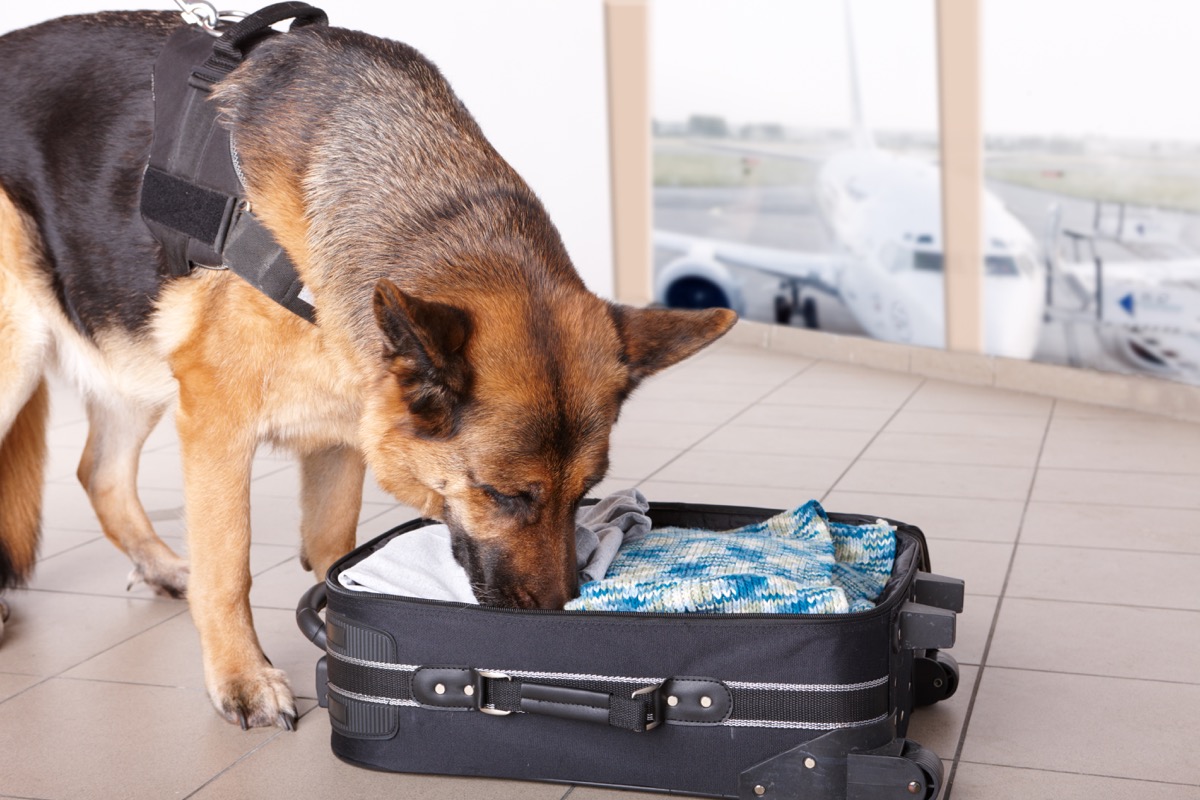
If you leave your suitcase unattended in the airport to run to the bathroom, the police have every right to search it. This was determined in the landmark 1997 United States v. Tugwell Supreme Court case, which determined that whenever a person leaves property unattended—intentionally or otherwise—they forfeit any privacy protections provided by the Fourth Amendment.
11
Everything you say is on the record.
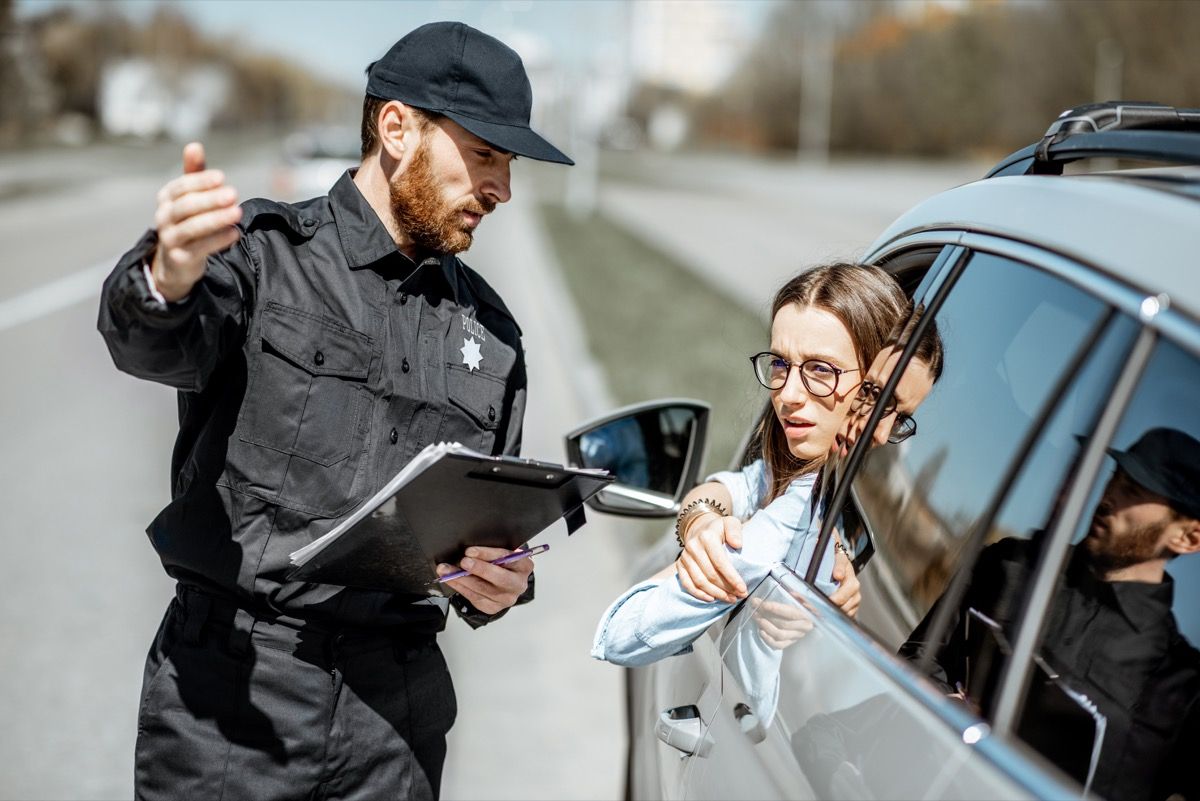
Remember that anything you say to an officer can and will be held against you in a court of law.
12
Unless you have been arrested or are being detained, you have every right to leave a police station.
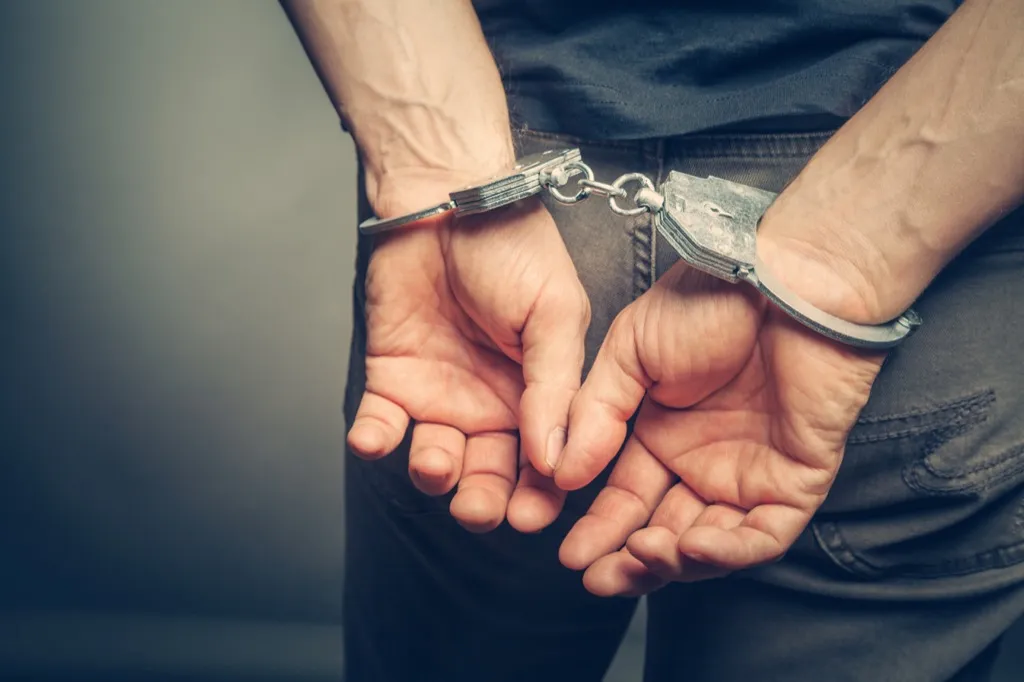
If you aren’t being detained and you haven’t been arrested, then the police cannot hold you against your will. This is thanks to the Fifth Amendment of the U.S. Constitution, which, as Florida public defender Howard Finkelstein notes, “protects you against self-incrimination.”
13
The police aren’t required to read you your rights if you aren’t being detained.

The Miranda rights—that is to say, the rights that police officers are obligated to read when they arrest someone—only apply to custodial interrogations, or interrogations that happen while someone is in police custody. When it comes to non-custodial interrogations that people give of their own free will, the police are not legally required to read the Miranda rights—and as such, anything a person says during an optional questioning can be used against them in court.
14
And even if you were arrested, there are things that you can say before being read your rights that are admissible in court.

Most of the things you say before being read your Miranda rights are considered inadmissible in court. However, Michigan criminal lawyer and defense attorney Patrick Barone notes on MirandaWarning.org that there are some exceptions to this rule. For instance, “if a statement is made that admits to [a] crime [and it] was not made in response to a question,” then the police can use that admission against you in court.
15
You have the right to look at any search warrants.
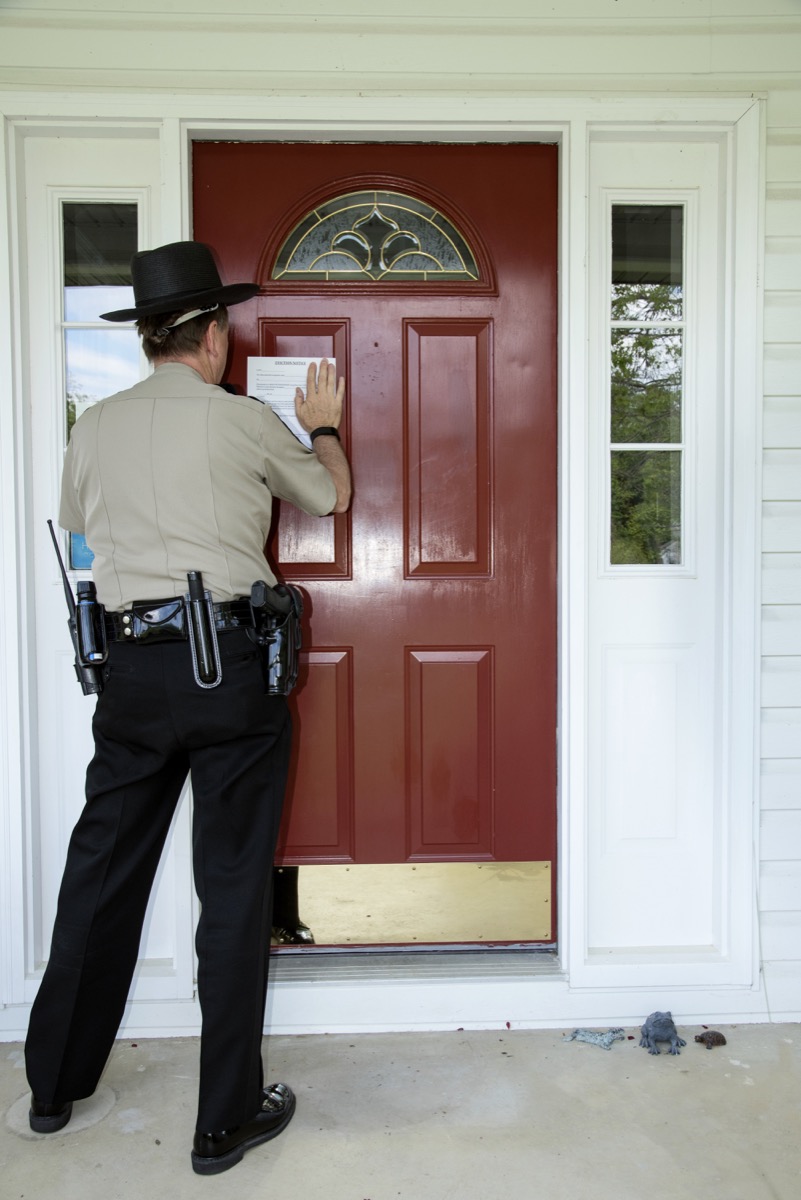
If the cops ever show up at your house and claim to have a search warrant, you can exercise your right to actually read said warrant. “You’re welcome to read [the warrant] at your leisure,” Christopher Hawk, a retired member of the police force, noted on Quora. “If the warrant turns out to be defective, you have remedies available through the court system. Evidence can be thrown out, civil suits can be brought against the department, etc.” Just bear in mind that the police don’t have to wait for you to read the warrant before entering your home.
16
Officers with search warrants almost always have to knock before they enter your house.
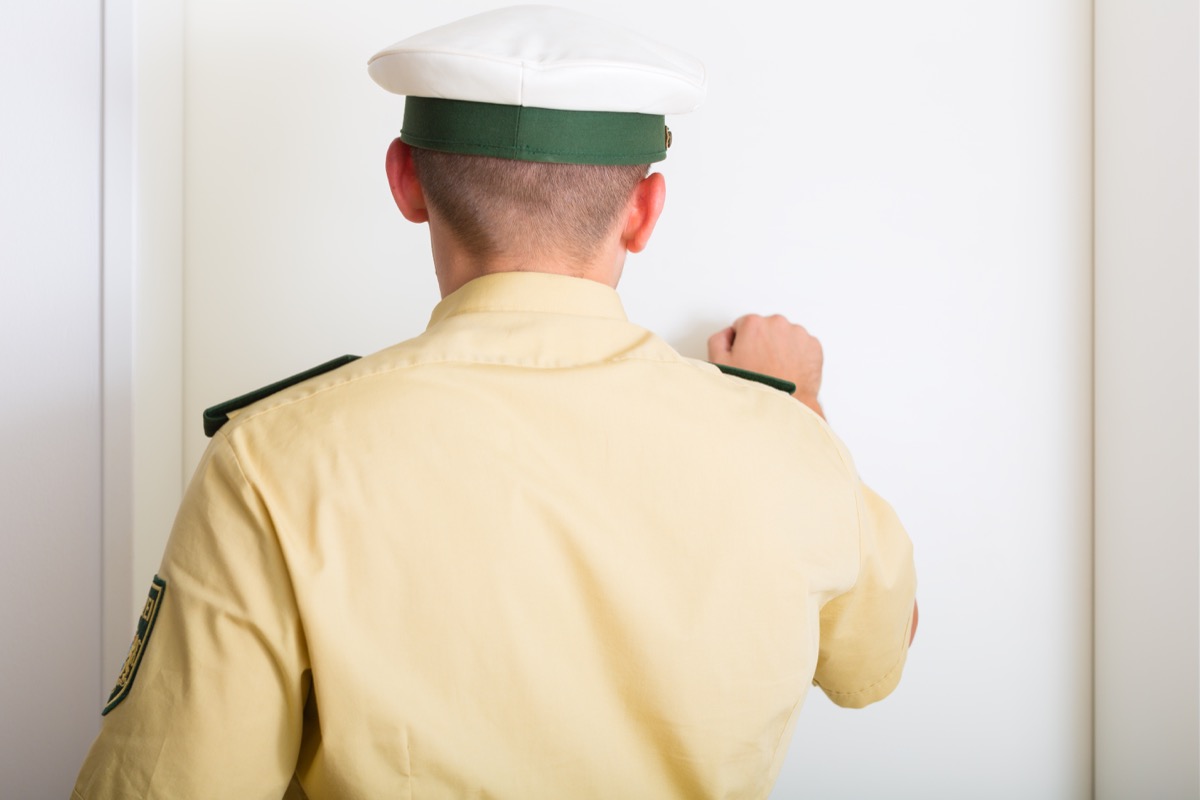
Here’s another thing that you should know when it comes to search warrants: Even when the police have one, they are legally required to knock and announce themselves before they enter. However, there is one exception to this rule: In Richards v. Wisconsin, the Supreme Court decided that the police can forego the formalities of knocking if making themselves known “would be dangerous or futile, or that it would inhibit the effective investigation of the crime.”
17
Police need probable cause to pull you over.
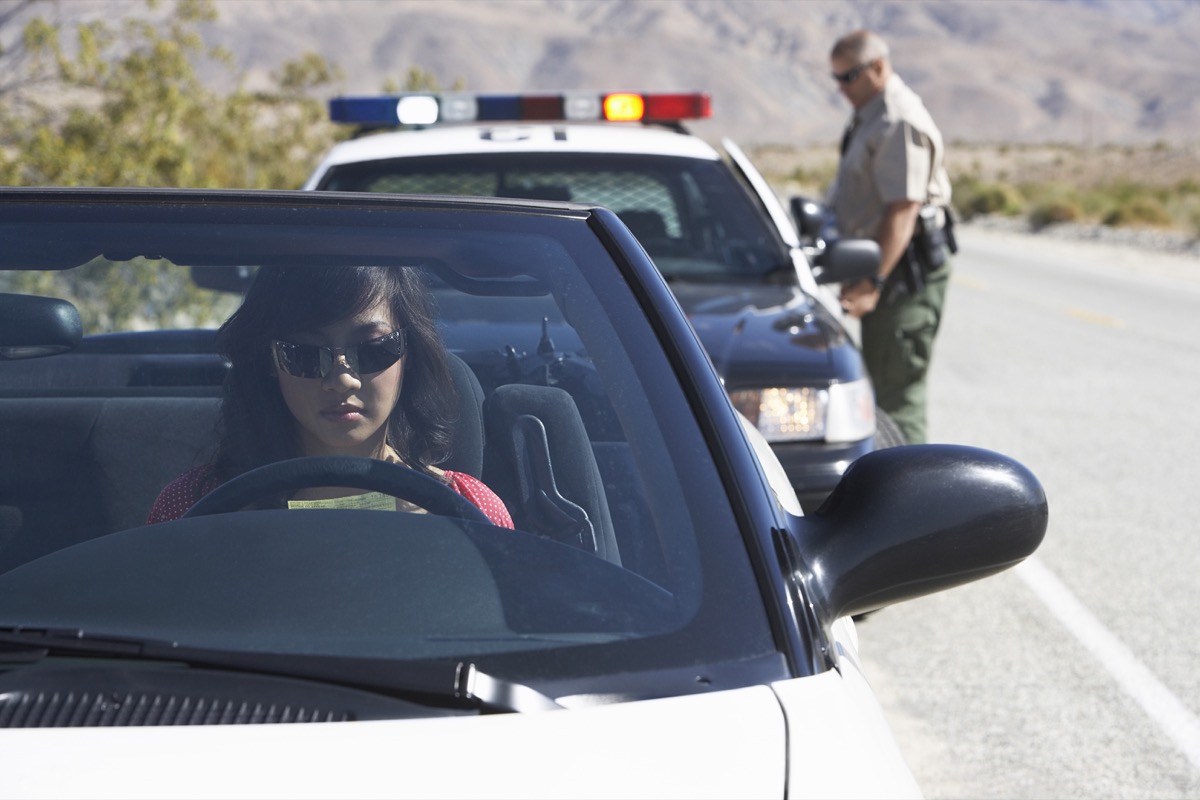
The police don’t have the right to pull you over without probable cause, notes Dallas criminal attorney Mick Mickelson. What’s more, if they do pull you over without a reason to do so and subsequently find evidence of a crime in your car, “they usually can’t use that evidence in court against you.”
18
A police officer can give you a speeding ticket based on their visual observations alone.
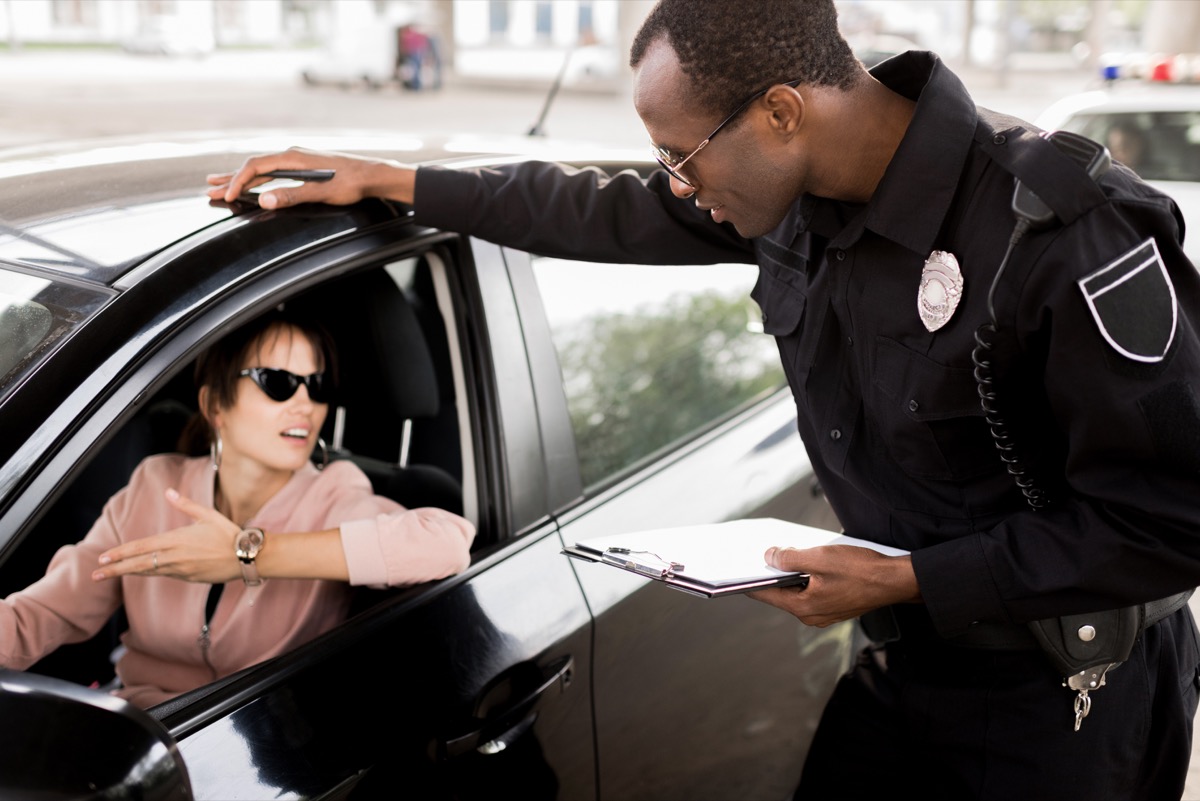
Believe it or not, a police officer doesn’t need to use a speed gun in order to determine whether or not you’re driving above the speed limit. Rather, New York attorney Michael Kramer notes that “it has been held that the opinion evidence of a police officer, uncorroborated by any other mechanical device, will be sufficient to sustain a speeding conviction.” Yes, you read that right: So long as the court finds that an officer is qualified to gauge speed visually, then their testimony against you is enough to make a speeding ticket valid.
19
Police officers aren’t as familiar with the laws as we may believe.
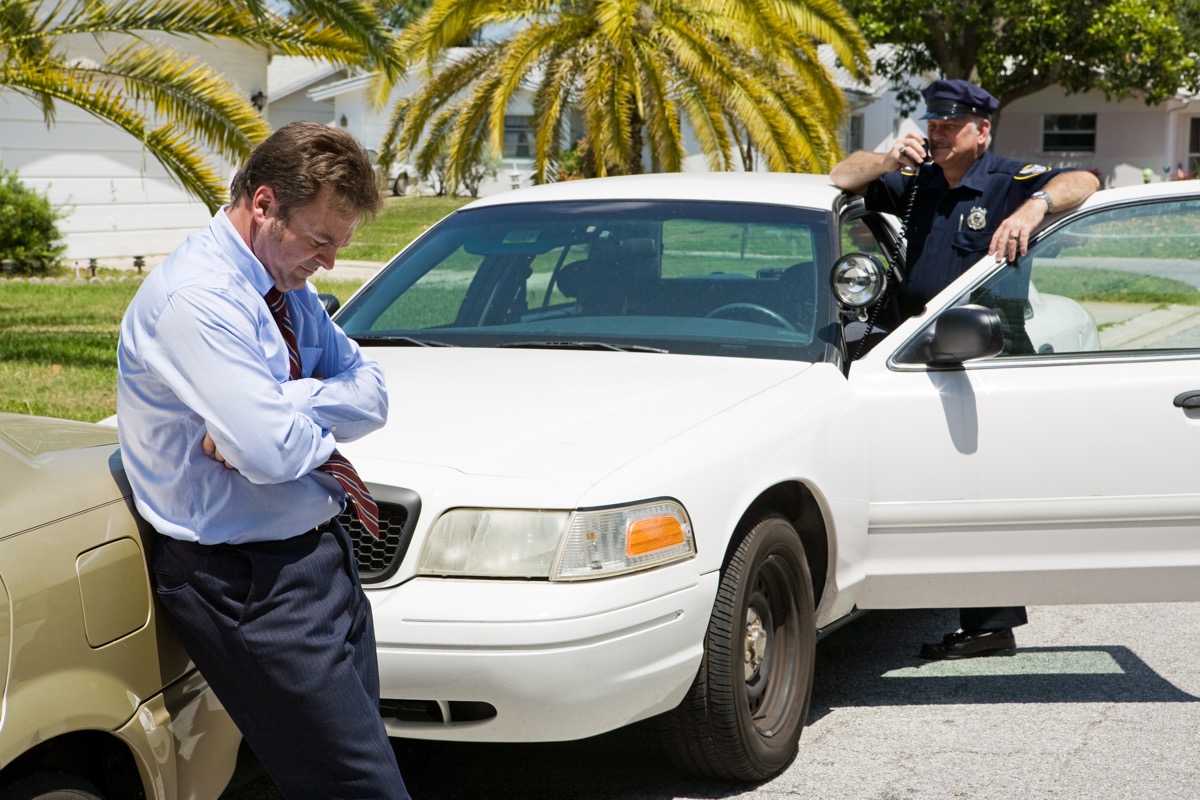
Just because police officers are tasked with keeping the streets safe and making sure that citizens are abiding by basic laws doesn’t mean that they know every single thing about the criminal justice system. Rather, Rick Bruno, a retired police commander, noted on Quora that “there are a lot of laws out there, and we [police officers] know the basic ones for the most part—the ones we deal with all the time—but sometimes someone does something that looks illegal and we’re not quite sure.”
20
And they don’t always trust their fellow men in uniform.
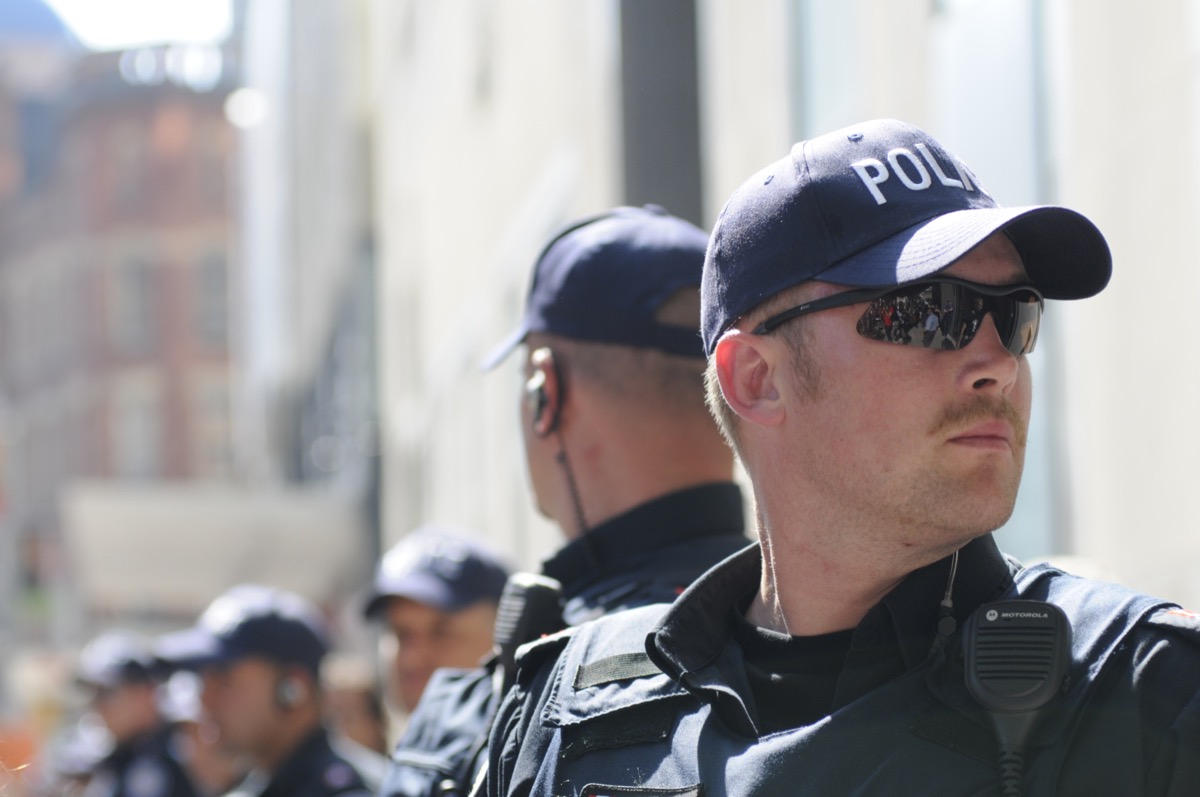
The same way you don’t get along with all of your coworkers, cops also deal with comrades who aren’t necessarily their favorite people. “We do not always trust the people we are working with, the ones wearing the same uniform we are wearing,” said Bruno. “Some are cowards, some are lazy, some are liars. Many times we try to get rid of them. Sometimes we can, [and] sometimes we cannot.” And for ways to make your job more enjoyable, check out these 20 Daily Confidence Boosters for Getting Ahead at Work.
To discover more amazing secrets about living your best life, click here to follow us on Instagram!